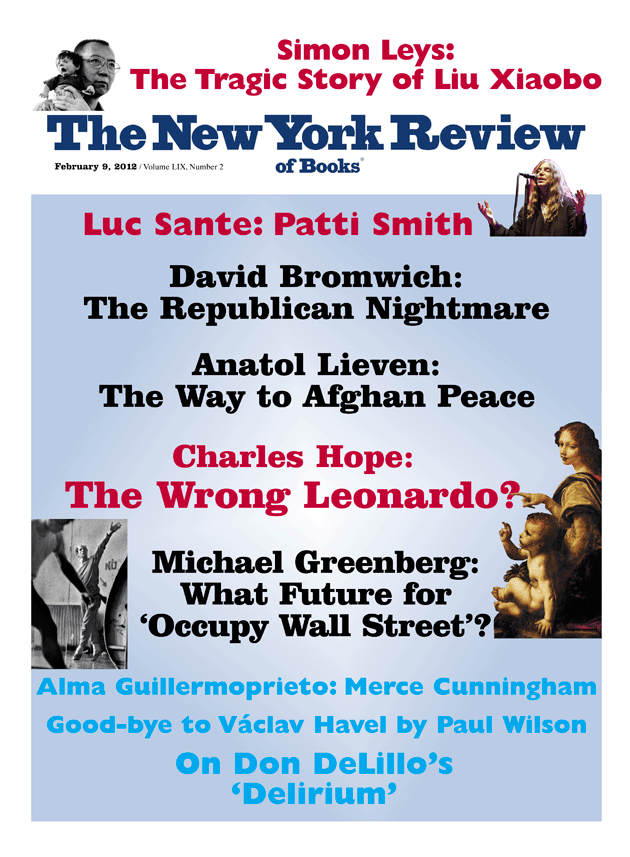In response to:
The Dutch Are Coming! from the October 27, 2011 issue
To the Editors:
In his otherwise excellent and insightful review of recently translated Dutch novels [“The Dutch Are Coming!,” NYR, October 27, 2011], Tim Parks repeats an unfortunate mistake that has long dogged Flemish novelists in particular. Writing about Louis Paul Boon and Hugo Claus, Parks notes that “Boon and Claus were Belgian nationals writing in Flemish, a version of Dutch spoken by six million Belgians.” Yes, both men were Belgian, and, yes, there are six million Flemings, but…no one writes in Flemish.
Flemish consists of a number of dialects that are spoken at home in the northern part of Belgium, never written. It is not a version of Dutch—which was itself a dialect that became preponderant in modern Holland. (There was an attempt in the late nineteenth century, during a period of emerging Flemish nationalism, to try and write in Flemish—for example the poetry of Guido Gezelle—but it proved so awkward and stilted that it was limited to a very few avant-garde poets, and quickly abandoned.)
Boon and Claus very much wrote in Dutch, with occasional words only Flemings would recognize—and hence the necessity for the revisions for a larger Dutch (i.e., Holland) market Parks mentions. But it is incorrect to say these books were written in Flemish. In addition, Parks forgets to mention in his review Claus’s The Sorrow of Belgium, his undisputed masterpiece, which has been available for some time in translation.
He is absolutely correct, however, that the language and symbolism most Flemish writers have used in the past have been localized and parochial, explaining in part their limited appeal beyond Belgium. Louis Paul Boon was widely considered to be in line for a Nobel before his death, but rumored to have been sidelined by this lack of more universal themes and references that made his work so appealing to Flemings—but to few beyond Flanders.
Dirk Vandewalle
Professor Dartmouth College
Hanover, New Hampshire
Tim Parks replies:
Many thanks to Dirk Vandewalle for his clarification. The terms I use in my article were those addressed to me in scores of conversations with writers and publishers in Amsterdam and Utrecht, but I’m happy to be corrected. While I was in Holland a two-day seminar was held to help English translators grasp the differences between the Dutch spoken in Belgium and the Dutch they had learned in Holland. In interviews with them afterward they seemed concerned that those differences were far greater than they had supposed. Vandewalle’s closing remark on the Nobel is intriguing in that it suggests how the prestige of this award and its tendency to favor authors with an international outlook might encourage the trend that I describe in my article toward styles and narratives less energetically engaged with the local and national culture.
This Issue
February 9, 2012
The Wrong Leonardo?
Václav Havel (1936–2011)
The Republican Nightmare


